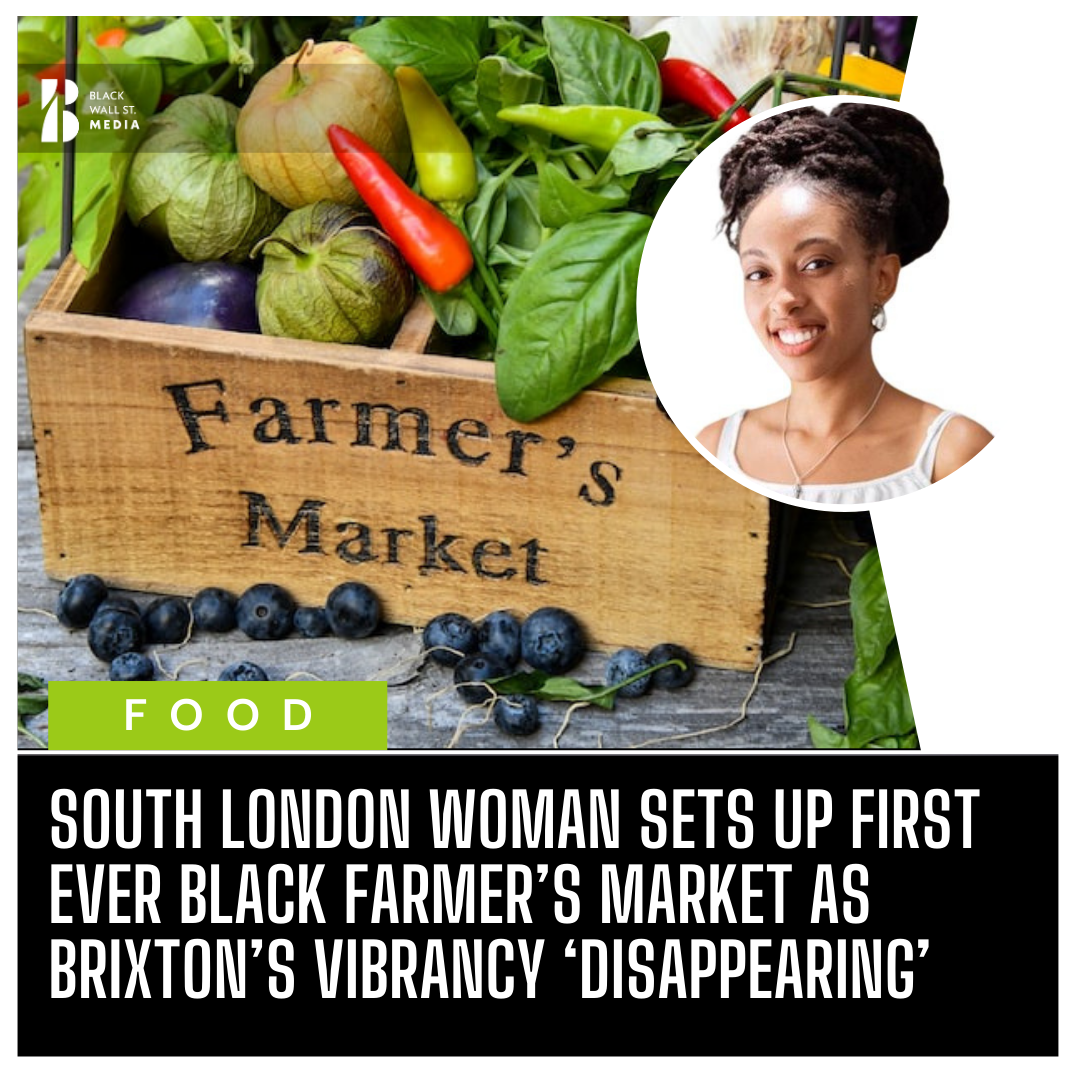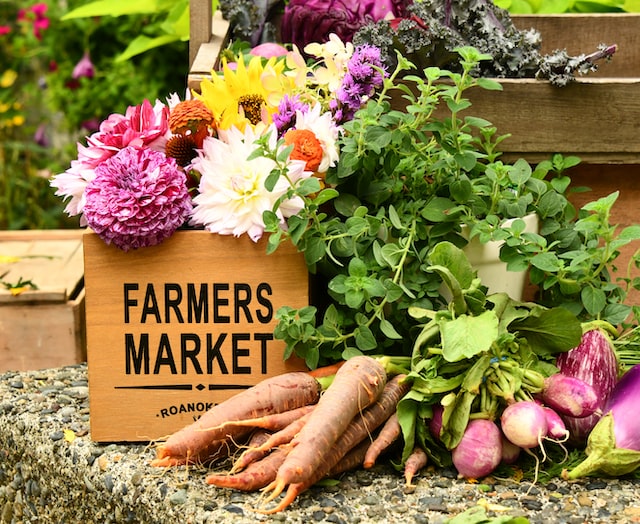
Natasha Pencil is worried for the future of Brixton's culture and communities of people of colour Bookmark
Farmers’ markets are a great day out and always worth a visit. They have seemingly exploded onto the scene over the last decade and they can be found in pretty much every part of the city.
Notting Hill, Stoke Newington, Marylebone and Bloomsbury are iconic farmers’ markets that have been attracting punters for years.
Fresh and local produce being their main attraction of them, a visit to a farmer’s market is an experience for your tastebuds.
Another iconic market is Brixton’s, in South London.
Brixton’s market is iconic in its own right and a walk down on Sundays is a worthwhile trip. A diverse borough in itself, the market aims to showcase the different products and cuisines of the people who call it home.
One entrepreneur who was a regular there found that even for such a diverse borough, there was something lacking.
Natasha Pencil, 35, has been a Lambeth resident for years. Her day job is as an impact officer for Children in Need but she also runs her own condiments business called Taino. After selling at Brixton Market, she fell in love with the “area and the people”.
She said: “Brixton Station Road market has recently this summer come under Lambeth council’s market team. A lot of things have changed in the way the market operates. For the people who regularly trade throughout the week, there is a level of uncertainty as they’re not sure what is happening next.”
Natasha kept looking around the area and found herself thinking about why there was so much empty space at Brixton Station Road. She knew Brixton as this vibrant, bubbly area with different cultures and wanted to see how she could try to make Brixton’s Farmers’ Market “one of the best in London”.
“It’s such a vibrant hub of so many bars and restaurants and I saw so much space that traders could use. There is no reason why this market shouldn’t be one of the best places to head to on a Sunday morning. I also knew how difficult and exclusive some farmer’s markets can be making them hard to get into. There are a lot of factors that could prevent people from getting in”, Natasha continued.
“Brixton market is really accessible for those who are just starting out as you can rent market stalls at a reasonable price. There have been a lot of changes to Brixton; the gentrification of the area has meant so many of the old guards and businesses aren’t here anymore. The Windrush generation came and put their mark on the area in the 50s and 60s and it is important to hold onto this area that is so historical for the Black community.”
It is this motivation that has led to Natasha creating Brixton’s first-ever Black Farmers’ Market taking place on Sunday, October 9. Utilising Brixton Station Road and POP Brixton, the day will see a wealth of local talent come and sell their produce. Aisha Jade, the owner of Carisips drink is helping co-organise the event.
 She told MyLondon: “We spoke to people in similar situations to us, especially Black people who grow their own products and they didn’t necessarily have things in place to be able to sell their stuff. They didn’t understand how to sell their stuff or how to get into these markets. We found that there were so many difficulties for Black business owners getting a product to market.
She told MyLondon: “We spoke to people in similar situations to us, especially Black people who grow their own products and they didn’t necessarily have things in place to be able to sell their stuff. They didn’t understand how to sell their stuff or how to get into these markets. We found that there were so many difficulties for Black business owners getting a product to market.
“There are barriers such as the price and a really long waiting list to get into certain markets that held many Black businesses from getting in.”
They both hope that by hosting a Black Farmers’ Market, a dialogue can be opened. Aisha, 26, added: “You find [at markets] that there are few Black growers and farmers and you find yourself asking why. A lot of these growers only have so much space and compared to these bigger commercial farms, they can’t compete and end up being shut out from these markets.
“You will find one operator that is across three/four markets across London every week. When it comes to Black growers, they don’t have this space and aren’t able to compete. They end up having to sell at car boot sales where people will haggle the price and they are left not getting their money’s worth out of their products.”
On the day there will be the opportunity to buy fresh pesticide-free produce from the Coco Collective, Black Rootz and Go Grow With Love. You can then indulge in delicious street food from Green Elephant Cafe and non-alcoholic drinks from Aisha’s Carisips. Natasha will be selling her Caribbean-inspired condiments.
They will be hosting the first Black Farmer’s Marker during Black History Month, something they think helps to signify its importance.
Aisha said: “In the beginning, I was thinking does it need to be called Black Farmers’ Market but I think that was needed. This is the perfect time to do it during Black History Month. If people don’t understand why then there’s nothing we can do. We as a community are so under-resourced and there’s a lack of representation for us here and the story needs to be told.”
Natasha passionately added: “There’s an even bigger problem with working-class people as well. It’s not just an ethnicity thing, it’s also a class one. There’s a big land owning, upper-middle-class aspect to this country of landowners and it’s concentrated to one demographic.”
The event on Sunday will be a one-time only thing depending on how it goes. It is also coming to the end of the season for the growers so the next most-likely one will be next year.
There will be people selling fresh Callaloo, pumpkin and tomatos, Taino’s condiments and Carisips drinks and other Black-owned businesses. Ultimately, highlighting the communities that helped build Brixton is an integral part of the event.
Natasha said: “Brixton is this hub of vibrancy and afro-Caribbean culture. There’s so much of London that is becoming the same, with the same chains everywhere. Brixton has communities of people of colour, from different diverse backgrounds all putting their stamp on the area and giving it an identity. To see that taken away by people moving in and changing the area isn’t what is needed.
“Brixton doesn’t need champagne and oyster bars. I’ve got friends who come to London and when we go to Brixton they expect their rice and peas and jerk chicken The way Brixton is going, the things that made it great won’t be here in 10 years.







